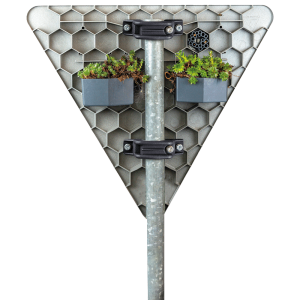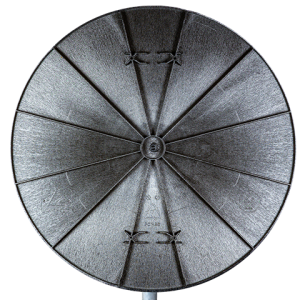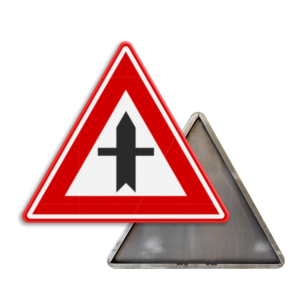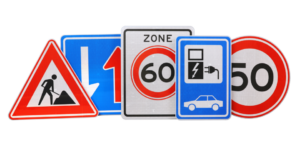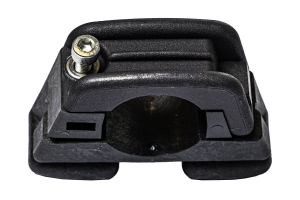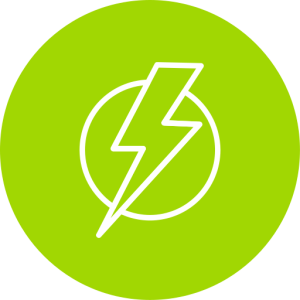Sustainability
Our vision is a sustainable and circular world.
A world where we reuse what we have in use, where we import less and look for local solutions and raw materials.
In everything we do, we consider the environmental impact of our products and our production process.
Every year we produce 1,650 million kilograms of plastic waste in the Netherlands. Of this, 990 million kg (60%) is still incinerated, 41 million kg (2.5%) ends up in nature, and 248 million kg (15%) is recycled. Processing plastic in a waste incinerator caused 770 million kg of CO2 emissions in 2017;
Our vision is a sustainable and circular world.
A world where we reuse what we have in use, where we import less and look for local solutions and raw materials.
In everything we do, we consider the environmental impact of our products and our production process.
Climate Signs uses only high-quality recycled raw materials, keeping them valuable and reused in the chain.
Is a product made of plastic durable?
We make our products from high-quality residues from the Post Consumer Recycling and Post Industrial Recycling waste streams. By not using new petroleum (fossil) raw materials, we produce 100% sustainable products.
Products from Climate Signs:
- Last longer than innovative alternatives;
- Saving on primary resources, through 100% use of recycled materials;
- Ensure that high-quality raw materials are safeguarded for future generations. Our products can be 100% recycled.
Environmental impact road sign:
For a traffic sign 1000 x 1000 mm, you save 49.13 kg of CO2 emissions by using a recycled BRS traffic sign from Climate Signs instead of a new aluminum one.
12 pieces of BRS-Sign traffic signs is equivalent to 1 round trip to Paris in terms of CO2 emission savings compared to new aluminum.
Measuring Sustainability:
Life cycle assessment (LCA) is a calculation method to universally determine environmental impact of a product. Climate Signs is the only traffic sign supplier in the Netherlands to have had a category 1 LCA study performed. Under chapter environmental impact we share the results.
What about micro plastics:
The only thing added to our products is a bio-based dye and UV stabilizer. In the case of the color black or dark gray, no dye is even added at all. The UV stabilizer ensures that our products do not discolor and therefore do not degrade due to UV radiation. The largest contributors to microplastics in the Netherlands are cosmetics and the use of washing machines (from clothing), paint and tires (tire wear).
Circularity
Plastic recycling program from Climate Signs
Collection Service of the plastic waste streams for the production of circular traffic signs.
Climate Signs sees it as its obligation to treat people and the environment with care. Therefore, we only produce traffic signs from bio-based or recycled plastic raw materials.
Because we want to prevent our high-quality produced traffic signs from ending up as residual material in regular waste disposal after the end of their technical service life, we have worked out our own return system with a number of chain partners.
The traffic signs supplied by Climate Signs can therefore be perfectly recycled within the same chain. This way we burden the environment less and we are assured that 100% of our traffic signs are reused within the Climate Signs production chain.
How:
For every customer who chooses the innovative traffic signs of Climate Signs, we place a 1m³ traffic sign recycling collection bin free of charge. The bin is placed by an electrically powered vehicle which is charged daily by our own solar panels. When the bin is full, we will collect it CO2-neutral and place a new bin. The old traffic signs are then kept in storage at Climate Signs until there is sufficient residual material for the subsequent recycling program.
If there is sufficient return flow, the high-quality raw materials are transported CO2-neutrally to our circular chain partner The Circulaire Plastics Fabriek (CPF) or Kunststof Recycling Nederland (KRN). At our recycling chain partners, the technically depreciated traffic signs are mechanically processed CO2-neutrally into injection moldable granules (re-granulate) and 100% processed into new traffic signs.
Together with our partners, we connect the circular chains. From physical recycling, granulation to a fully circular end product, through injection molding. During the product development phase at Climate Signs, we looked at a design for recycling and carbon-neutral logistics.
This is the best part of our sustainable product concept: a product leaves the factory and at some point returns to be reprocessed into traffic signs again. Climate Signs and The Circular Plastics Factory aim to convert as many residual materials as possible into high-quality applications, utilizing the original material as much as possible.
Because plastic waste separation is very efficiently organized in the Netherlands and all our products are provided with a raw material QR code or plastic recycle code, our plastic traffic signs are easily separated by plastic type in the regular residual stream (residual waste) and 100% reused within another production process.
QR code as shown on signs:
ABS recyclate raw material ABS recyclate raw material
Plastic recycling code as shown on signs:
- Return system:
The introduction of the Climate Signs quality standard CS© enables road authorities to make a well-considered choice for sustainability and the circular reuse of technically obsolete outdoor traffic signs. With the CS return system we extend the life cycle of existing raw materials and reduce CO2 emissions within existing production and distribution chains.
Climate Signs stands for sustainable product development, achieving a CO2-neutral society and introducing socially relevant innovation in relation to the continuously changing outdoor space.
Objectives:
- Reuse residues within existing chains efficiently and to a high quality;
- Replace fossil, critical and unsustainably produced raw materials (aluminum) with biobased and recycled raw materials;
- Products are designed circularly.
Pursuing a circular manufacturing process with value retention for all of our plastic residuals.
Principles:
- The realization of a clean residual stream (own waste separation by commodity family)
- Focus on value retention of the resource;
- Focus on the circular use of the re-granulate in the production of new road signs.
Conservation of raw material value is an essential component in our circular process. We believe that A-grade residual material should be reused as A-grade granulate to avoid ‘down grading’ of the material. As a result, we strive for customized solutions within our plastic recycling program.
- We strive for circularity and value retention of residual streams.
- Rules of play plastic recycling program Climate Signs
We provide you with recycle crates with a capacity of 1 m³ in which the residual material is collected.
There are obviously some “ground rules” attached to this:
- Only plastic materials supplied by us will be collected;
- It is strictly forbidden to deposit other waste materials, such as wood, aluminum, etc. in the recycle crate(s);
- Once the recycling crate(s) are full, please contact your contact person at Climate Signs. This will ensure that the recycling crate(s) are emptiedin a CO2-neutral manner;
- When filling the recycling crate(s), it is expected that the residual materials will be stacked in the crate(s) as efficiently as possible. Preferably, no protruding residuals should be put into the crate(s);
- To make the circular process a success, it is expected that all employees involved will be made aware of the above circular agreements.
If the recycle crates are not presented in accordance with these ground rules, Climate Signs unfortunately cannot accept them. Hereby it is important that your employees are informed of the above rules of the game.
The realization of a pure residual stream is our starting point in plastic recycling. To guarantee this clean waste stream towards our recycling partners, the above rules of the game are necessary.
Only by working together within the chain can we professionalize the process and offer us more flexibility and decisiveness within the circular / recycling process.
Quality
Climate Signs’ traffic signs are produced 100% from bio-based or circular raw materials, and the production of our sustainable carriers is completely C02-neutral (solar energy).
Any road manager who chooses sustainability will eventually end up with Climate Signs’ innovative traffic signs. In order to make the green transition with traffic signs, it is very important that we deliver a quality comparable to aluminum. Because Climate Signs’ honeycomb traffic sign is the only alternative to aluminum that is fully CE certified, we can deliver the quality described in the EN12899:2007 and NEN 3381 standard.
The carrier of a road sign is only one part of the road sign. The most important part of the traffic sign is the Signface (image area) affixed to it.
Since for the Climate Signs traffic signs we desire only the highest deliverable quality, we chose printing technology with reflection class III film when producing the signface.
Reflective film:
Reflective film on traffic signs has been significantly improving road safety for over 80 years. Because traffic signs must be visible and recognizable to all road users, in all weather conditions as a vertical information carrier, we provide our durable honeycomb traffic signs with a very high-quality reflective Class III film. The applied Retro-reflective film is highly visible for both long and short distances, and provides optimal night visibility, resulting in 64% fewer accidents.
The image plane should fully comply with the minimum required retro-reflection values of the standard DIN 67520-2013:10, type RA3A and RA3B with optimal functionality at both large and small observation and incidence angles in accordance with the table.
CE mark film:
CE marking is a declaration by the manufacturer that the product complies with all applicable laws and regulations of specific European directives.
The retro-reflective film applied by Climate Signs is fully compliant with the European regulations for building products.
The CE mark and additional product data (lot number and shelf life) is included as a watermark in the retro-reflective foil.
Extended warranty
At Climate Signs, we pair quality with innovation and sustainability. UV printing technology has revolutionized the production of traffic sign sign signfaces (image area). Because all of Climate Signs’ signfaces are printed, production produces significantly less waste and environmental impact than traditional production methods. Because environmentally friendly solvent-free UV inks are used, optimum durability is ensured. To protect the foil and ink from UV radiation and damage, the signface is additionally provided with a transparent laminate (UV blocker). The foil and ink system is composed with care, forming a unique ‘Matched Component System’, which guarantees a very high quality for a long period of time.
The even image surface further ensures that traffic dirt and algae growth is less likely to adhere to the traffic sign.
In areas where a lot of graffiti or sticker sticking occurs, we can apply a special anti-graffiti or anti-sticker sticking film.
Digital printing
Scientific research indicates that the environmental impact of digital printing is about 60% less than screen printing. Signface printing is therefore many times more environmentally friendly than the traditional screen printing production technique.
The image surface is a Microprismatic film.
The Polymer film material is produced according to the most optimal production processes, microreplication technique, is self-adhesive and solvent-free.
The micro-prismatic reflective foils bounce the reflected light back to the light source maximally.
Print technology advantages:
- Environmentally friendly use of solvent-free UV inks;
- Protection ink and film by laminate;
- Contamination (graffiti or algae deposits) is easily removed;
- Longer economic and technical life.
The retro-reflective Class III signface applied to the honeycomb traffic sign is covered by a 12-year expiring warranty.
The Climate Signs honeycomb traffic sign thus introduces a new standard of quality, coupled with ultimate durability and very favorable ECO index.
All signfaces thus amply comply with the European standard NEN-EN 12899-1:2007, the additional national standard NEN 3381:2020, the implementing regulations BABW on traffic signs (Besluit Administratieve Bepalingen inzake het Wegverkeer) and the RVV 1990 (Reglement Verkeersregels en Verkeerstekens 1990).
Cleaning signface:
Normal soiling can be cleaned with a soft brush or sponge ne rinse with demineralized water.
A cleaning agent is not necessary.
For graffiti, use a non-abrasive cleaning agent that does not contain strong solvents.
Warranty:
- Adhesion of the image surface (film and laminate) to the support for >98% of the surface;
- Retro-reflection value of the printed signfaces continue to comply with DIN 67520:2013:10 Table 8 and 9;
- Color degradation falls within the EN-12899-1 Luminance Class B2 standard.
If the signs do not meet the above conditions, we will supply an equivalent replacement sign that is at least of the same or later production date.
Based on straight-line depreciation (expiring warranty).
Warranty conditions:
- The traffic sign is mounted by a Climate Signs approved contractor or contractor;
- The traffic sign system (support and fasteners) were purchased from Climate Signs;
- The traffic sign was installed in accordance with mounting and placement instructions;
- The road sign has only been used in one location;
- For locations with high chemical loads, such as in coastal regions and near heavy industry, a different warranty period may apply;
- There is normal use;
- There is demonstrable periodic maintenance according to the VNVF Maintenance Regulations (see vnvf.nl/maintenance-regulations).
The climate neutral production and 100% circular or biobased raw material for our traffic signs together with the printed signface provides the most sustainable traffic sign in the Netherlands

